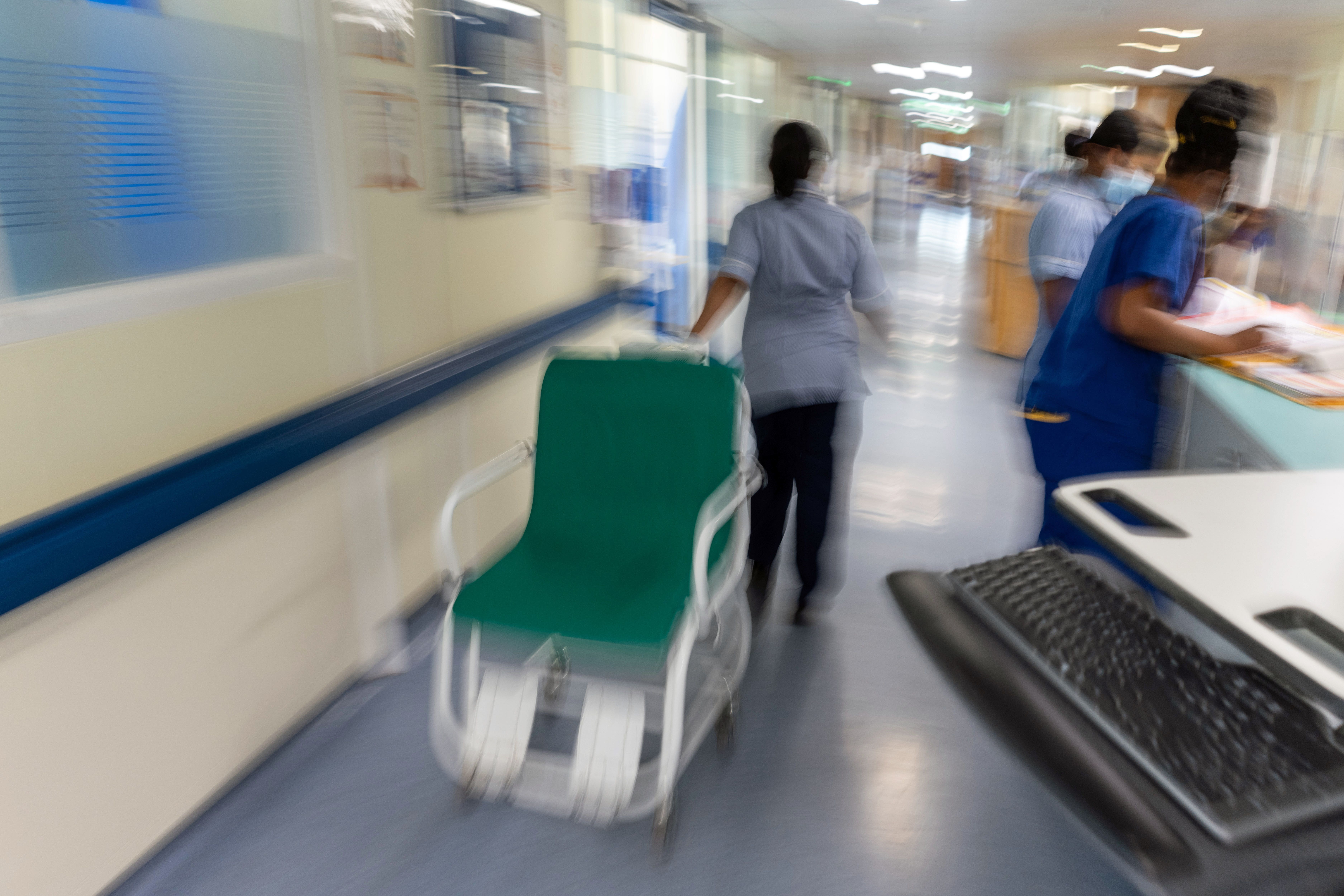Patients in chairs ‘day and night’ and physio gym turned into ward, say doctors
The Royal College of Physicians has published accounts from doctors on the front line talking about the crisis in NHS hospitals.

Your support helps us to tell the story
From reproductive rights to climate change to Big Tech, The Independent is on the ground when the story is developing. Whether it's investigating the financials of Elon Musk's pro-Trump PAC or producing our latest documentary, 'The A Word', which shines a light on the American women fighting for reproductive rights, we know how important it is to parse out the facts from the messaging.
At such a critical moment in US history, we need reporters on the ground. Your donation allows us to keep sending journalists to speak to both sides of the story.
The Independent is trusted by Americans across the entire political spectrum. And unlike many other quality news outlets, we choose not to lock Americans out of our reporting and analysis with paywalls. We believe quality journalism should be available to everyone, paid for by those who can afford it.
Your support makes all the difference.Doctors have told how patients are being managed in chairs “day and night” and physiotherapy gyms are being turned into wards as hospitals fill up.
The Royal College of Physicians (RCP) said treating patients in corridors cannot be allowed to continue as it published accounts from doctors on the front line talking about the crisis in NHS hospitals.
Dr Mashkur Khan, RCP regional adviser for south London, said: “Our physiotherapy gym has now been taken over for extra bed spaces and the corridors are full to the brim.
“Patients are often managed in chairs all day and all night.”
We are in a vicious unproductive circle. The current chaos means that we default to admission and the cycle of crisis continues
He said patients are also being sent to wards prior to a bed being available.
Dr Jacob de Wolff, RCP regional manager for north west London, said: “It is not uncommon to arrive at 8am in the emergency department to be greeted by a corridor full of trolleys.
“Some of these patients will have spent the night there, in bright lights and with no easy access to a bathroom.
“Even those lucky enough to have their own cubicle will still have had poor and unrefreshing sleep.”
RCP clinical vice president Dr John Dean said: “Physicians tell us that they are being asked to provide more and more care in corridors and in other temporary environments, such as treating additional patients on wards, over and above agreed numbers. This is unacceptable and must end.
“As an immediate priority, the NHS must begin publishing data on the number of patients who are receiving care in temporary environments.”
Dr Dean said the Government’s drive to get the overall waiting list for planned treatment down must contain realistic expectations “to ensure doctors do not face further burnout” in trying to restore the 18-week target.
In December, emergency department attendances in England reached 2.3 million.
The RCP said many of the 54,207 patients waiting longer than 12 hours following a decision to admit in December – the third highest recorded number of patients with waits of this kind – will have received care in temporary environments, such as corridors or chairs.
Commenting on the situation beyond England, RCP vice president for Wales, Dr Hilary Williams, said: “Patients waiting in corridors is unsafe and undignified.
“We are in a vicious unproductive circle. The current chaos means that we default to admission and the cycle of crisis continues. Every hour that an older person spends lying on a trolley or sitting in a chair prolongs their stay in hospital. Continuity of care is lost.”
Dr Sacha Moore, RCP resident doctor committee representative for Wales, said many medical patients are staying on a non-medical ward, “making continuity of care far more challenging, and ultimately slowing down our ability to get people home. We simply don’t have enough doctors.”
Professor Phil Banfield, chairman of the British Medical Association (BMA), said: “Doctors and patients are being left to face situations they simply should not have to: patients needing urgent care left in corridors for hours on end, often in unsanitary conditions.
“A seasonal flu outbreak is something we know will come and yet it’s helping bring our health system to its knees. This should not be happening.
“We are in a national emergency. This cannot be our national norm. Every year, we run into exactly the same problems.
“We lacked surge capacity to admit patients in the pandemic, and we just haven’t invested in staff and beds in time since then. This is not a luxury – it is essential to cope with the fluctuations in demand we know are coming.”